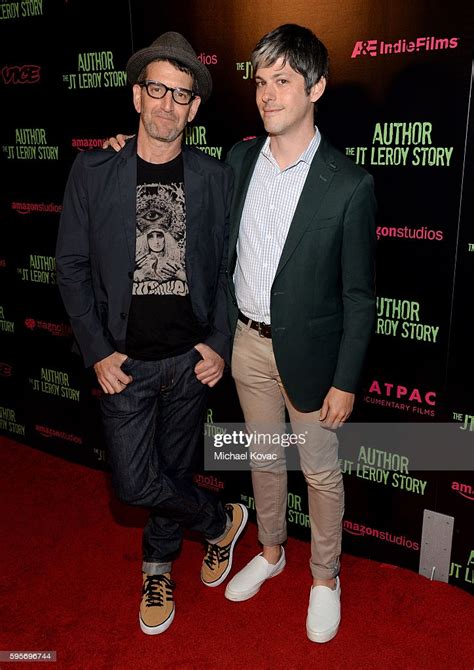A Quote by Annie Dillard
You can, in short, lead the life of the mind, which is, despite some appalling frustrations, the happiest life on earth. And one day, in the thick of this, approaching some partial vision, you will (I swear) find yourself on the receiving end of - of all things - an "idea for a story," and you will, God save you, start thinking about writing some fiction of your own. Then you will understand, in what I fancy might be a blinding flash, that all this passionate thinking is what fiction is about, that all those other fiction writers started as you did, and are laborers in the same vineyard.
Quote Topics
About
All Things
Appalling
Approaching
Blinding
Day
Despite
Did
Earth
End
Fancy
Fiction
Fiction Writer
Fiction Writers
Find
Flash
Frustrations
God
Happiest
Idea
Laborers
Lead
Life
Might
Mind
One Day
Other
Own
Partial
Passionate
Receiving
Same
Save
Short
Some
Start
Started
Story
Swear
Then
Thick
Things
Thinking
Those
Understand
Vineyard
Vision
Which
Will
Writers
Writing
Your
Yourself
Related Quotes
What writers of fantasy, science fiction, and much historical fiction do for a living is different from what writers of so-called literary or other kinds of fiction do. The name of the game in F/SF/HF is creating fictional worlds and then telling particular stories set in those worlds. If you're doing it right, then the reader, coming to the end of the story, will say, "Hey, wait a minute, there are so many other stories that could be told in this universe!" And that's how we get the sprawling, coherent fictional universes that fandom is all about.
Science fiction is any idea that occurs in the head and doesn't exist yet, but soon will, and will change everything for everybody, and nothing will ever be the same again. As soon as you have an idea that changes some small part of the world you are writing science fiction. It is always the art of the possible, never the impossible.
I've never written a fiction before about real people. . . . I read everything that I could find by people who met them and tried to get some impression of them, but as always when you write fiction, even if you have completely fictitious characters, you start by thinking of what is plausible, what would they say, what would they be likely to do, what would they be likely to think. At some point, if it is every going to come to life, the characters seem to take over and start speaking themselves, and it happened with [COPENHAGEN].
If you want to be a fiction writer, you need to start reading like a fiction writer. To do so, you need to learn about craft so that the next time you pick up a contemporary short story, you're reading it not as an abstraction floating in formaldehyde, existing simply for the theorist's dull scalpel to saw on, but as a concrete thing constructed out of words and shaped by syntax, brought to life by a writer who made several thousand choices, some large, some small, before letting that imperfect beauty, the story, walk on its own two feet.
The act of choosing what to place in your piece when you're a historian or a non-fiction writer already renders it into fiction for someone else. In some ways fiction comes a lot closer to reality. When you start talking about something as brutal as slavery and life in the American West, it's really important to take a non- judgmental stance. We romanticize a great deal about life in the American West, but I thank God I wasn't living during that time. No matter what color you were, it was rough, crude, tough living.
The secret to writing is writing. Lots of people I know talk about writing. They will tell me about the book they are going to write, or are thinking about writing, or may write some day in the future. And I know they will never do it. If someone is serious about writing, then they will sit down every day and put some words down on paper.
As you see, I bear some resentment and some scars from the years of anti-genre bigotry. My own fiction, which moves freely around among realism, magical realism, science fiction, fantasy of various kinds, historical fiction, young adult fiction, parable, and other subgenres, to the point where much of it is ungenrifiable, all got shoved into the Sci Fi wastebasket or labeled as kiddilit - subliterature.
I think all of us begin as writers. I wanted to be a writer from the time I as eight, long before I heard of jazz. The question is, once you have that obsession, what is your subject going to be and you often don't know for some time. It might become fiction, it might be non-fiction, and if it's non-fiction it can go in any number of directions.
You could ask yourself, 'How did God Bless me today?' If you do that long enough and with faith, you will find yourself remembering blessings. And sometimes you will have gifts brought to your mind which you failed to notice during the day, but which you will then know were a touch of God's hand in your life.



































